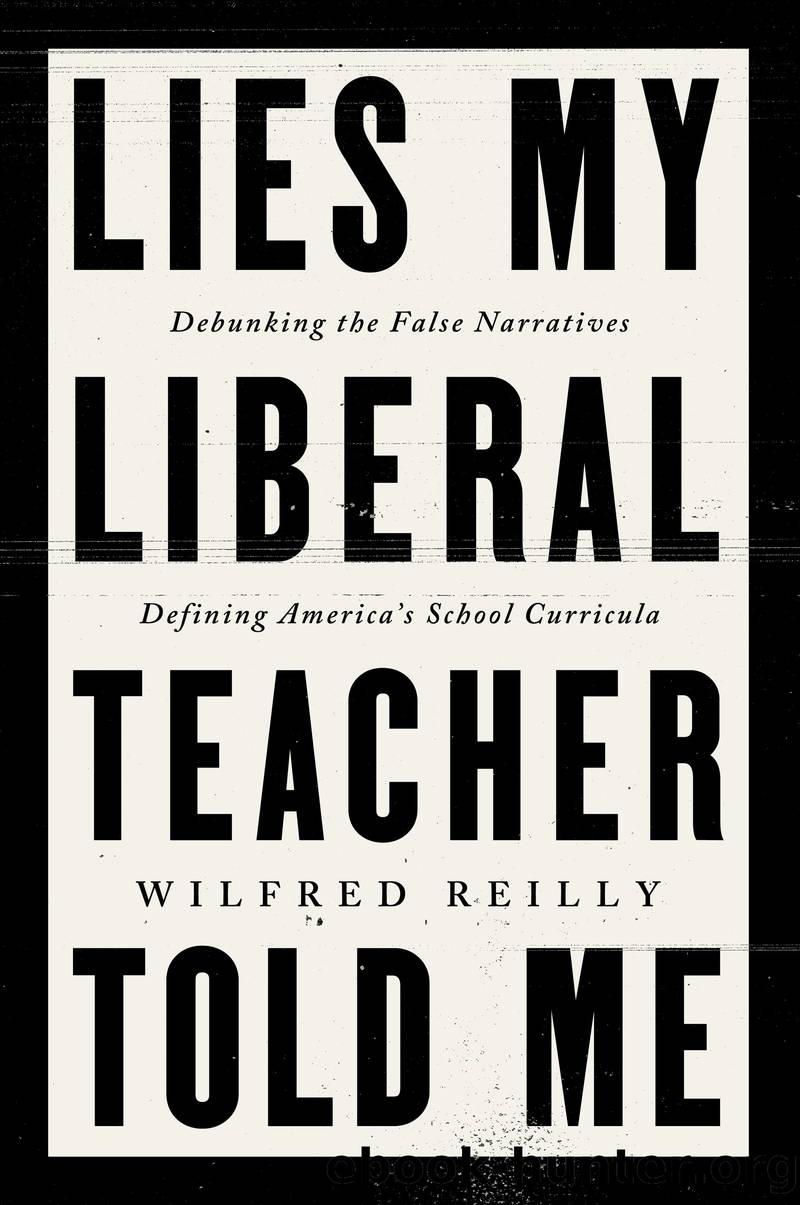Lies My Liberal Teacher Told Me by Wilfred Reilly

Author:Wilfred Reilly
Language: eng
Format: epub
Publisher: HarperCollins
Published: 2024-04-17T00:00:00+00:00
Lie #7
âAmerican Use of Nukes to End World War Two Was âEvilâ and âUnjustifiedââ
Another cliché which has become almost universal among Western scholars, general intellectuals, and activists is that the United States of America should feel considerable guilt about being âthe only nation ever to use nuclear weapons in rageâ and that we engaged in an unprecedented and probably indefensible act of evil by dropping Fat Man and Little Boy on Japanese Hiroshima and Nagasaki. Again: not so fast.
An important element in properly analyzing any historical moment is to view it in context and to truly step into the shoes of the people making difficult-to-impossible choices at that precise point in time. Historical hindsight is 20/20, but truly looking at the messy circumstances of the end of World War Two makes it impossible to justify modern armchair-generalsâ analyses that smugly dismiss America as uncomplicatedly evil.
The existence and nature of the conventional narrative isâas usual in this bookânot particularly contested. The primary discussion of the bombings on the Perspective debate site,1 widely accessed by high school and college students, simply assumes that they were an act of evil: it is headlined âThe Bombings of Hiroshima and Nagasaki: Plain Evil or a Necessary Evil?â After a few points are made for the Necessary Evil side, author Lee Mesika goes on to argue at length that the attack was plain evil. Mesika notes that the use of atomics âcompletely destroyed both Hiroshima and Nagasaki,â wiping out more than 90 percent of the buildings in both cities, either at once or via the firestorms that followed the initial nuclear explosions. Still more tragically, at least 250,000 people were killed by the strikeâabout half of them immediately and relatively humanely, but others felled months or years later by novel radiation-driven âtypes of illnesses and cancers.â
While any human death is tragic, or so it is conventional for humans to pretend, Mesika makes the additional point that the Hiroshima and Nagasaki bombings were acts of war that primarily harmed civilians, in violation of the contemporary ethical rule that âwars should be fought between armies.â In Hiroshima, at least 20,000 Japanese soldiers were killed by the dropping of Little Boy, but the usual estimate for civilian casualties is far higher and closer to 80,000. Even more remarkably, in Nagasaki, between 50,000 and 80,000 people were killed, but this toll included only âaround 150 Japanese soldiers.â In contrast, at least 8,200 Korean semi-slaves, who were being forced to support the Japanese war effort by laboring inside the Mitsubishi munitions plant and other factories producing military matériel, were killed in Nagasaki. âHiroshima and Nagasaki gave new meaning to collateral damage,â the Perspective article concludes: âThe number of civilians killed seems unreasonably high in relation to the number of soldiers killed.â
Finally, if a bit at random, Mesika goes on to argue that the Hiroshima and Nagasaki bombings did not avert the Cold War between the United States and the Union of Soviet Socialist Republics. Citing the (somewhat fringe but interesting) historical
Download
This site does not store any files on its server. We only index and link to content provided by other sites. Please contact the content providers to delete copyright contents if any and email us, we'll remove relevant links or contents immediately.
| Anarchism | Communism & Socialism |
| Conservatism & Liberalism | Democracy |
| Fascism | Libertarianism |
| Nationalism | Radicalism |
| Utopian |
The Secret History by Donna Tartt(19083)
The Social Justice Warrior Handbook by Lisa De Pasquale(12190)
Thirteen Reasons Why by Jay Asher(8907)
This Is How You Lose Her by Junot Diaz(6885)
Weapons of Math Destruction by Cathy O'Neil(6279)
Zero to One by Peter Thiel(5798)
Beartown by Fredrik Backman(5751)
The Myth of the Strong Leader by Archie Brown(5507)
The Fire Next Time by James Baldwin(5441)
How Democracies Die by Steven Levitsky & Daniel Ziblatt(5218)
Promise Me, Dad by Joe Biden(5153)
Stone's Rules by Roger Stone(5087)
A Higher Loyalty: Truth, Lies, and Leadership by James Comey(4959)
100 Deadly Skills by Clint Emerson(4924)
Rise and Kill First by Ronen Bergman(4788)
Secrecy World by Jake Bernstein(4751)
The David Icke Guide to the Global Conspiracy (and how to end it) by David Icke(4717)
The Farm by Tom Rob Smith(4506)
The Doomsday Machine by Daniel Ellsberg(4489)
